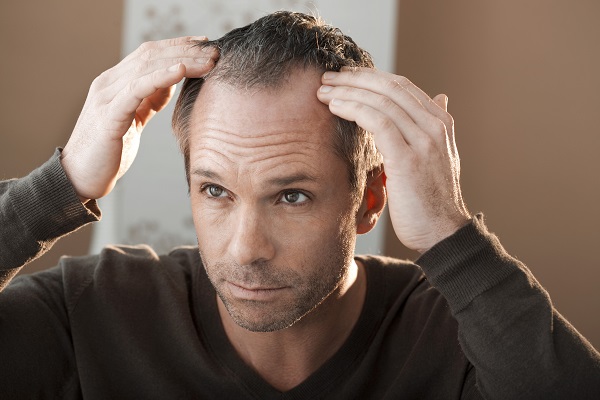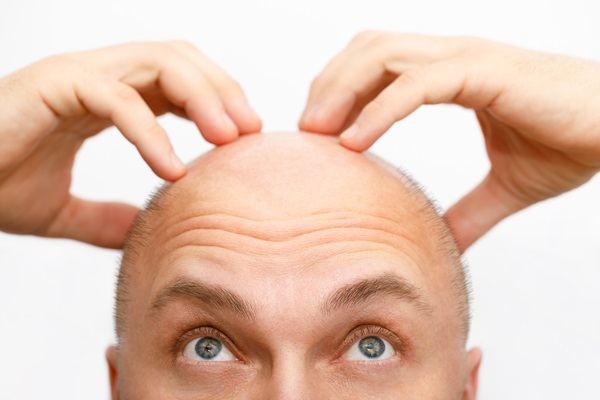Common Treatment Solutions From a Hair Clinic

A hair clinic can treat a range of hair-related complications and conditions, including hair loss. This review discusses common treatment solutions for hair concerns that hair clinics can offer.
Hair clinic treatment solutions
Every hair clinic is unique and offers its own set of services, depending on the clinician's education, training, and focus for treatment. Standard services that hair clinics offer include styling services, hair loss diagnostics, and hair replacement services (both surgical and non-surgical). Some may also provide additional cosmetic services for the face. Patients who are interested in a specific service should call the hair clinic first, to make sure it offers the service that they desire.
Hair loss diagnostics
One of the primary focuses for many hair clinics is the replacement of hair after pattern baldness (or other conditions that cause hair loss) occurs. Through an extensive evaluation of the patient's medical and hereditary history, examination of their head of hair, and other diagnostic methods, a hair doctor can pinpoint the most likely cause of hair loss. Specifically, hair loss diagnostics may include:
- A physical exam
- Dietary evaluation
- Medical history evaluation
- Family history evaluation
- Blood tests
- Pull test
- Scalp biopsy
- Light microscopy
Not every diagnostic service is used when diagnosing the cause and severity of hair loss, although these are all tests that hair doctors have available. Diagnostics is a crucial step because it determines which method may be the most effective in meeting the patient's goals and preferences for hair replacement. Hair loss diagnostic services are usually the first step during a consultation visit with a hair clinic if the patient's goal is to replace or regrow their lost hair.
Hair loss treatments
There are more treatments for hair loss available than ever before. There are two goals for hair loss treatment, which are to slow the rate of hair loss or to reverse it entirely. In some cases, depending on the diagnosis, hair may grow back on its own without medical or surgical intervention. If hair loss treatment is needed, the options for treatment can include medications such as minoxidil and finasteride. Surgical intervention options are also available. Notably, hair transplant surgery is a proven and relatively safe treatment option for those who have experienced hair loss. An FDA-approved laser therapy to treat hereditary hair loss may also be available.
Hair replacement services
Some patients may opt for other hair replacement services that do not involve medications or surgical intervention. These hair replacement services that many hair clinics offer include weaves and wigs.
Hair design services
Many hair clinics offer standard services not related to hair loss. For example, hairstyling and shampooing are common at many hair clinics; some may also offer haircut services. Scalp and hair relaxers are services that many hair clinics can provide to their patients.
Face services
In some instances, hair clinics can provide face services. Common face services that hair clinics may offer include brow waxing, lip waxing, chin waxing, strip lashes, basic makeup services, and brow tinting.
Types of conditions that a hair doctor can help treat
Hair clinics can help treat a range of hair-related conditions. Notably, these conditions include hair loss (pattern baldness), excessive hair growth, hair shedding, and various types of alopecia, among a range of other hair conditions.
Hair loss
Hair loss, specifically pattern baldness, can be treated in a variety of ways in most cases, including through hair transplant surgery.
Excessive hair growth
In some cases, patients visit a hair clinic to treat excessive hair growth. Many hair clinics offer laser hair removal and other services to decrease the amount of hair growth on a certain area, primarily on the body as opposed to the head.
Hair shedding
Hair shedding occurs when large numbers of hair follicles detach from the scalp. This could be stress-related or due to a medical condition, among other possible causes.
Alopecia
Alopecia can result from an attack on the hair follicles by the body's own immune system. There are different types of alopecia, and the treatment for each type may vary.
Visit our hair clinic to learn more
You can schedule a visit with our hair doctor by calling us or sending us a message today. One of our clinicians will be more than happy to answer any of your initial questions and concerns. During your consultation visit with our hair doctor, we can discuss your goals for treatment and find the right plan to help you reach those goals.
Get more information here: http://dillonhair.com or call Dillon Hair Restoration at (800) 518-9307
Check out what others are saying about our services on Yelp: Read our Yelp reviews.
Recent Posts
Hair loss can usher in mixed emotions and damper your self-esteem, whether or not you were expecting the day. Fortunately, hair plugs or grafts can provide patients with a full head of their natural hair. If thinning or balding is something you are experiencing right now, help is available at our Schaumburg office. First, review…
Hair thinning treatments are far more versatile than they get credit for. Our team works closely with each patient to determine the root cause of their thinning tresses and craft an effective treatment plan. Take a closer look at common causes of hair thinning and the various methods we can use to treat it.Many factors…
Hair loss can significantly impact people, affecting their self-confidence and interpersonal relationships. Fortunately, hair grafting, also known as hair transplantation, provides a viable option to restore the natural hairline. If you are still deciding whether to pursue a hair graft, here are three reasons to consider it.Unlike temporary solutions like wigs or hairpieces, a hair…
For those with wrinkled skin, Botox® injections can provide great relief. While it may be a natural sign of aging, the presence of wrinkles can be frustrating to some. Thanks to the scientific research and testing in the 1990s by several dermatologists, Botox® was approved in 2002 by the Food and Drug Administration for cosmetic…


